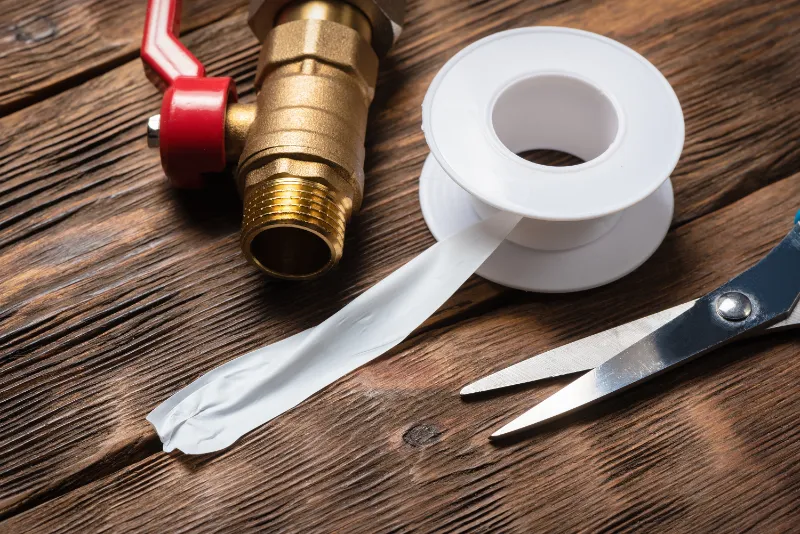Contents
Are you experiencing plumbing problems? Wondering if toilet paper could be the culprit? Well, you’ve come to the right place!
In this article, we will delve into whether toilet paper can cause plumbing issues and provide you with tips on how to prevent them.
So, sit back and relax as we explore the world of toilet paper and its impact on your plumbing system.
Key Takeaways
- Excessive amounts of toilet paper can lead to clogs in the pipes.
- Using thinner, easily dissolvable toilet paper can reduce the risk of clogs.
- Flushing toilet paper can lead to blockages in the sewer system.
- Proper disposal of toilet paper and educating others about proper usage can prevent plumbing issues.
Understanding Toilet Paper and Plumbing
To better understand the potential impact of toilet paper on plumbing, it’s important for you to consider how the two are interconnected. As someone who desires to serve others, you may come across situations where you have to address plumbing problems caused by toilet paper. Understanding the relationship between toilet paper and plumbing can help you prevent and resolve such issues efficiently.
Toilet paper is a vital part of our daily routine, but it can also become a source of plumbing trouble if not used properly. When toilet paper is flushed down the toilet, it travels through the pipes and enters the sewage system. The fibers in toilet paper are designed to break down easily when immersed in water, allowing it to disintegrate and move through the plumbing system smoothly. However, using excessive amounts of toilet paper or using a thick, heavy brand can lead to clogs in the pipes.
Clogs can cause blockages in the plumbing system, leading to backups and overflowing toilets. This not only creates an inconvenience but can also result in costly repairs. It’s important to educate yourself and others on proper toilet paper usage to avoid these issues.
To prevent plumbing problems, encourage users to use only the necessary amount of toilet paper. Remind them to flush only small amounts at a time and to avoid flushing anything other than toilet paper down the toilet. Additionally, promoting the use of thinner, more easily dissolvable toilet paper can help reduce the risk of clogs.
Common Plumbing Issues Caused by Toilet Paper
One common plumbing issue caused by toilet paper is clogging in the pipes. When you use excessive amounts of toilet paper, it can accumulate in the pipes and create a blockage. This can lead to slow draining or even complete blockage of your toilet, causing inconvenience and frustration.
Another common problem is when toilet paper gets flushed down the toilet and ends up in the sewer system. The toilet paper can get tangled with other debris in the sewer pipes, creating a larger blockage. This can result in sewage backup, which isn’t only unpleasant but also poses a health hazard.
To prevent these issues, it’s important to use toilet paper in moderation. Only use the necessary amount to clean yourself properly, and avoid flushing large wads of toilet paper at once. It’s also advisable to choose toilet paper that’s designed to break down easily in water. Look for options that are labeled as ‘septic-safe’ or ‘biodegradable.’
Regular maintenance is crucial in preventing plumbing problems caused by toilet paper. Schedule routine inspections and cleaning of your plumbing system to ensure that any potential blockages are detected and addressed promptly. If you notice any signs of slow drainage or clogging, it’s important to take action immediately to prevent further damage.
Factors That Contribute to Toilet Paper Plumbing Problems
Excessive usage of toilet paper can contribute to plumbing problems. While toilet paper is designed to dissolve easily in water, certain factors can increase the likelihood of clogged pipes and backups. It’s important to understand these factors in order to prevent potential plumbing issues and ensure a smooth and trouble-free experience for everyone.
One factor that can contribute to toilet paper plumbing problems is the type of toilet paper being used. Some brands may be thicker or more absorbent than others, making them less likely to break down in water. It’s recommended to choose toilet paper that’s labeled as ‘septic-safe’ or ‘dissolves quickly’ to minimize the risk of clogs.
Another factor to consider is the amount of toilet paper being used. Using excessive amounts of toilet paper in a single flush can overwhelm the plumbing system and lead to blockages. It’s important to use only as much toilet paper as necessary and to flush multiple times if needed, rather than attempting to flush a large amount at once.
Additionally, the frequency of toilet paper usage can also contribute to plumbing problems. If multiple people in a household are using excessive amounts of toilet paper on a regular basis, the plumbing system may become overwhelmed. Encouraging moderation and proper disposal of toilet paper can help prevent potential issues.
Tips for Preventing Toilet Paper-Related Plumbing Issues
Prevent toilet paper-related plumbing issues by using proper disposal methods. By taking a few simple steps, you can avoid potential problems and keep your plumbing running smoothly.
First, remember to only flush toilet paper down the toilet. While it may be tempting to dispose of other items in this way, such as wipes or feminine hygiene products, it’s important to resist the urge. These items can cause clogs and backups in your plumbing system. Instead, dispose of them in the trash.
Another tip is to use toilet paper in moderation. Using excessive amounts of toilet paper can lead to clogs and blockages. Be mindful of how much you’re using and try to use only what’s necessary. If you find that you consistently need to use a large amount of toilet paper, consider investing in a high-quality, thicker brand that requires less usage.
Regular maintenance is also essential for preventing toilet paper-related plumbing issues. Make sure to have your plumbing system inspected and cleaned regularly by a professional. This will help identify any potential problems before they become major issues. Additionally, consider using a plumbing snake or plunger to clear any minor clogs before they escalate.
Lastly, educate your family and guests about proper toilet paper usage and disposal. By raising awareness, you can prevent others from unknowingly causing plumbing problems. Encourage everyone to only flush toilet paper and to dispose of other items in the trash.
Seeking Professional Help for Plumbing Problems
If you encounter plumbing problems related to toilet paper, it’s recommended to seek professional assistance. Plumbing issues can be frustrating and inconvenient, but trying to fix them yourself without the proper knowledge and tools can potentially make the situation worse. By reaching out to a professional plumber, you can ensure that the problem is properly diagnosed and resolved, saving you time, money, and unnecessary stress.
Professional plumbers have the experience and expertise to handle a wide range of plumbing problems, including those caused by toilet paper. They’ve the necessary tools and equipment to effectively unclog drains, repair leaks, and address any other issues related to plumbing. They can also provide you with valuable advice on how to prevent future problems and maintain the overall health of your plumbing system.
When you hire a professional plumber, you aren’t only getting their technical skills but also their commitment to customer service. They understand the importance of serving others and strive to provide prompt and efficient service. They’ll listen to your concerns, answer any questions you may have, and work diligently to resolve your plumbing issue in a timely manner.
In addition to their technical expertise, professional plumbers also have access to a network of resources that can be beneficial in resolving complex plumbing problems. They can collaborate with other professionals, such as electricians or contractors, if necessary, to ensure that all aspects of the problem are addressed and resolved.
Conclusion
In conclusion, it’s important to be aware of the potential plumbing problems that can be caused by toilet paper. Understanding the common issues and factors that contribute to these problems can help prevent them from occurring.
By following the tips provided and seeking professional help when needed, you can ensure that your plumbing system remains in good condition and avoid any unnecessary inconveniences or expenses.




